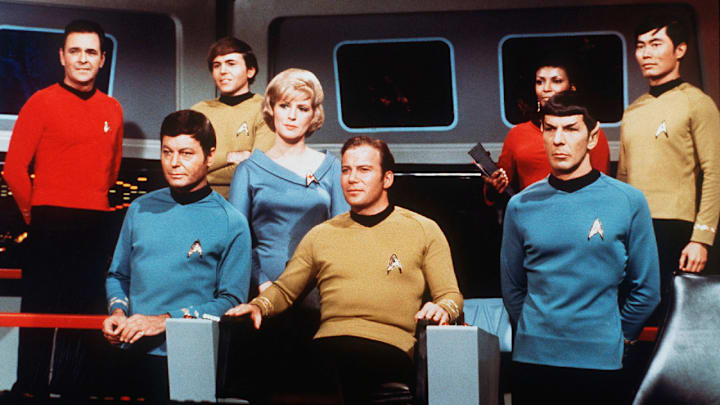Over 200 years in the future, in the vastness of space, a war is raging. Two enemy planets are striking each other with advanced weaponry that is taking thousands of lives, and no one can predict who will be struck next. Except… none of it is real. No weapons of any kind have been deployed. No targets have been hit. Not a blade of grass has even been ruffled. But people are dying... willfully.
Years ago, the two warring planets made a pact to prevent unjust barbarity by either aggressor. This agreement was reached not to end the war through diplomacy, but to sanitize it through automation. There would be no armies trading gunfire, no artillery shells striking cities, no ships exploding over land or in space.
A simple computer program, shared by both planets, would simply point to a patch of land on a map and identify it as “destroyed.” All citizens who were situated within that patch of land would simply walk to the nearest “disintegration chamber” and willfully be killed.
Clean, bloodless, eternal war.
In 1967, this Star Trek: The Original Series episode "A Taste of Armageddon" might have seemed absurdly high concept if not for the Cold War. In a dichotomized world where the shared threat of atomic suicide was single-handedly holding back war between America and the USSR, the two hemispheric powers found themselves like kings on a chess board, unable to strike at each other without maneuvering an array of proxies. But in 2025, this TOS episode exposes an issue far more personal than nuclear brinksmanship. It is a warning, intentional or unintentional, about the perils of social media.
In many ways, the computer network that unleashed a steady stream of senseless yet sterile death is precisely what we are dealing with since the advent of social media. In our hands, we hold the power to nuke the careers and reputations of anyone on the face of the earth.
We have created a zero sum game, but instead of two hegemonic powers there are billions, each firing social warheads willy-nilly. The results are devastating, but it’s all too digitized and sleek and "neon" for us to care. Guns are too messy, but phones are too shiny to be a problem. Right?
Yes, we pretend that social media solves our societal problems, even as it only helps exacerbate them year over year. The people of Eminiar VII in "A Taste of Armageddon" made this same mistake for centuries on end as they let the computer run their war for them. And yet they sold everything that made them alive and unique.
To ensure peace, they made themselves like machines. Social media has made us like machines too, but instead of peace, it has made us more violent and paranoid about our fellow humans. We have traded our humanity for anger and fear. What did we gain for our trouble but slightly more stylish-looking websites?
"A Taste Of Armageddon" reminded us that a computer is infinitely more dangerous than a gun. As not to be a hypocrite, I locked my Twitter (now X) account and stopped posting on social media last year. If I were Captain Kirk, I would take a phaser and shoot the machines that operate these websites.
Yes, losing the power to hurl long-distance social bombs will force us to fight each other face to face. For the first time in decades, we would have a real war on our hands. We can either wage it with real weapons, or we might consider an alternative and put an end to it:
Make peace.
Perhaps our warlike urges are instinctive but instincts can be fought. At the end of the day, that is what separates us from the machines — and makes us uniquely worthy of Star Trek's ideal future. What are your thoughts on the state of social media? Share your thoughts and comments with us on the Redshirts Always Die Facebook and X pages.
